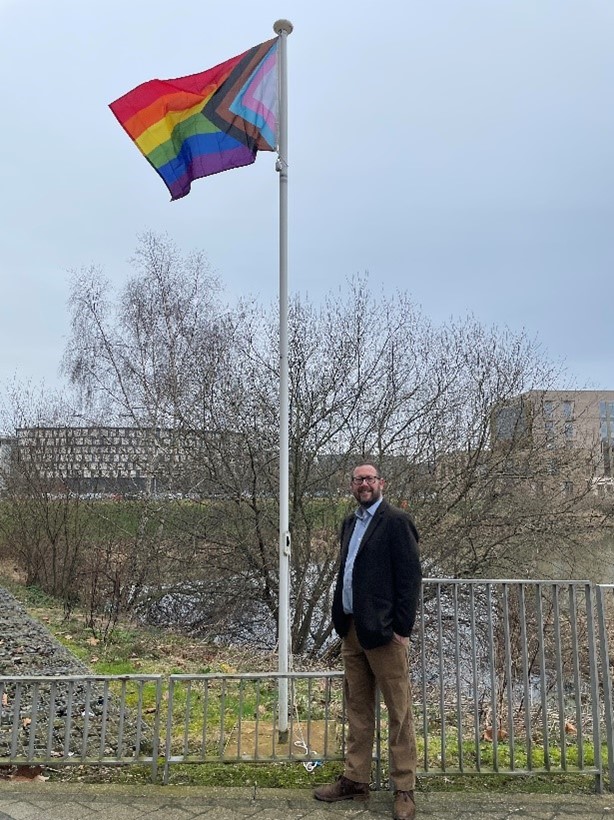LGBT+ History Month
February is LGBT+ History Month. The 2024 theme celebrates LGBT+ peoples’ contribution to the field of Medicine and Healthcare both historically and today. As well as celebrating at the University of Lincoln, with our programme of events including workshops, talks and an exhibition, Lincoln staff and students are also invited to join the Lincolnshire Partnership NHS Foundation Trust events.
The University of Lincoln programme of LGBT+ events can be found here.
This year, as well as hosting our own events, all colleagues and students from the University are invited to join Lincolnshire Partnership NHS Foundation Trust’s LGBT+ History Month events (see downloads)
Duncan French – PVC College of Health & Science, University LGBTQIA+ Senior Champion on the importance of LGBTQI+ History Month
“I am delighted to be able to support the enormous amount of work that has gone into putting together LGBTQI+ History Month. They are a broad range of activities and talks, and plenty for us to engage with, catch up with old friends, and learn more about the LGBTQI+ community. As LGBTQI+ Senior Champion for the University, it is always great to see how as an important part of the broader University community, we can share our stories and learn from each other. The overall theme of the month internationally is “Medicine: Under the Scope” with a particular emphasis on the role of the gay community in the health and medicine workforce.
As a university with such a strong focus on these subjects, it is a really great opportunity for us to reflect on the contributions of LGBTQI+ colleagues in these fields, as well as the health challenges, and health inequalities, often suffered by those in the gay community. From the AIDS crisis, through the empirically-shown higher prevalence of mental health issues in the gay community, and even recently the stigma around the M-pox vaccines, the availability and prioritisation of health treatments and interventions are often based on non-medical priorities, reflecting broader political and social contexts. A timely moment thus to reflect and to challenge; two key facets of a University conversation. I wish everyone well.”




